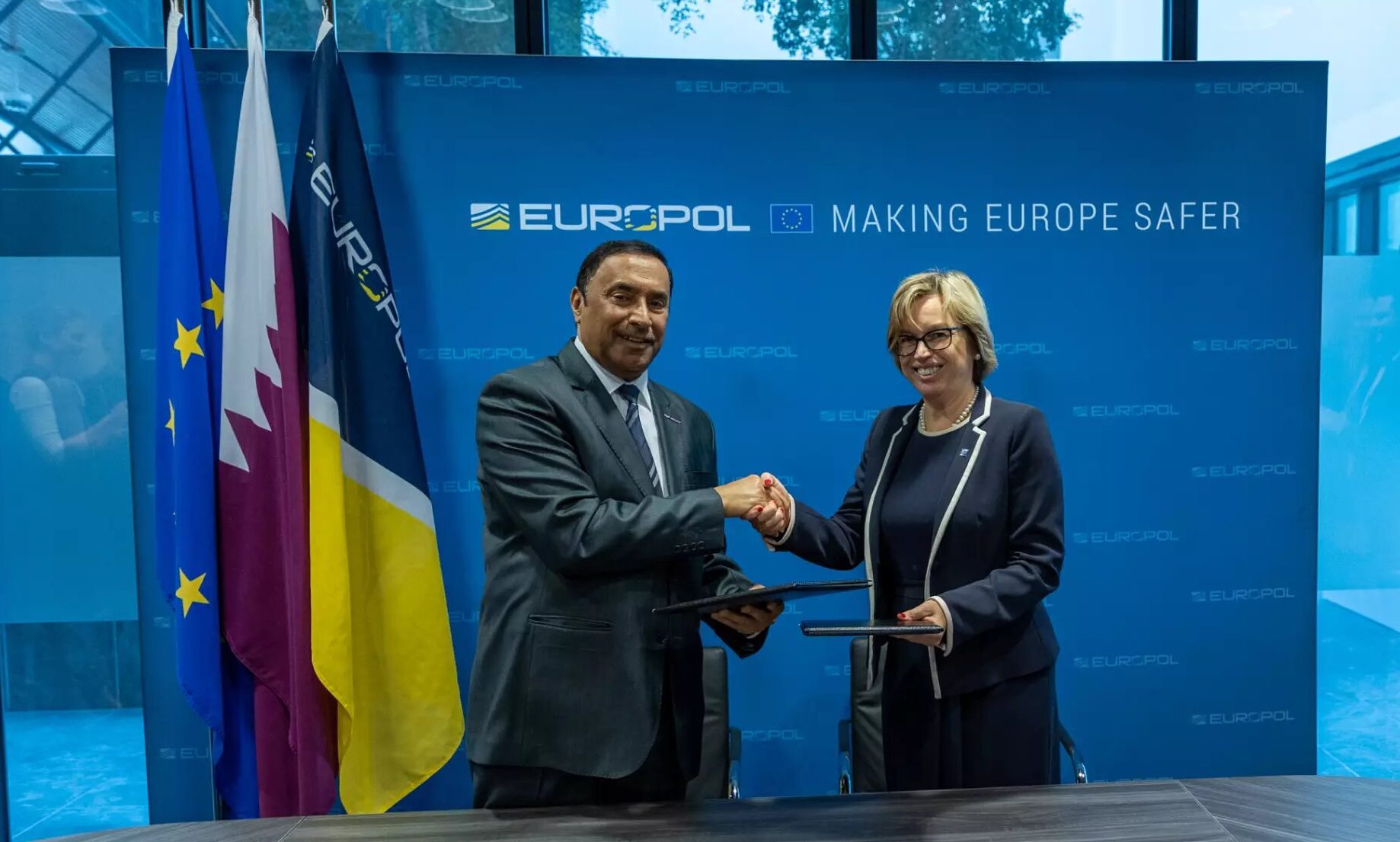The Gulf state frequently calls on the international community to intensify its efforts in combating terrorism.
Qatar and the European Union joined forces “in preventing and combating serious crime and terrorism” under a new working agreement inked on Wednesday in The Hague.
Signed between Qatar’s Ministry of Interior (MOI) and the European Union Agency for Law Enforcement Cooperation (Europol), the agreement entails setting up “a secure system for the exchange of information”.
“Today marks the start of a fruitful collaboration between the law enforcement authorities of Qatar and their counterparts in the European Union,” said Europol’s Executive Director Catherine De Bolle.
The move means Qatar would be able to join law enforcement authorities from more than 40 countries to tackle crime and criminal investigations while exchanging mutual advice on such matters.
The agreement also includes the exchange of “general situation reports, results of strategic analysis, participation in training activities”.
Qatar and Europol would be “providing advice and support in individual criminal investigations”, with the Gulf state having the ability to send a liaison officer to the EU entity.
“Europol is looking forward to hosting a Qatari liaison officer in its headquarters in The Hague, further enabling a trustful flow of information in our collective fight against organised crime and terrorism,” added De Bolle.
Qatar’s Major General Khalifa Nasr Al-Nasr, Director of the Human Resources Department at MOI, expressed the Gulf state’s commitment to supporting global security efforts.
“In a global framework, no country can operate in a vacuum…Europol’s global tools and international law enforcement networks will further support our national and regional security efforts,” said Al-Nasr.
Qatar’s counterterrorism efforts
Qatar frequently calls on the international community to intensify its efforts in combatting terrorism, with the Gulf state leading regional efforts in achieving this goal.
This year, Qatar extended its partnership with the UN Office for Counter-terrorism (UNOCT) for another three years between 2024 and 2026.
The agreement also entailed the establishment of a UN Counter-terrorism Office in Doha, which was inaugurated last year. The office was the first to be established in the region.
In 2015, Qatar and the UN Office on Drugs and Crime (UNODC) signed a $49 million agreement to fund projects that focus on “countering violent extremism through prisoner rehabilitation and social integration programmes, and youth education for justice”.
The Gulf state is also a founding member of the Global Counter-terrorism Forum and is the only country from the Middle East that is a board member of the Global Community Engagement and Resilience Fund (GCERF).
As firm believers in the role of education in empowering the youth and helping the global fight against terrorism, the UNGA unanimously passed resolution 74/275 in 2020 to establish September 9 as the International Day to Protect Education from Attack.
The initiative was proposed by Sheikha Moza bint Nasser, Chairperson of Education Above All Foundation (EAAF) and a member of the UN Sustainable Development Goals Advocates Group.
The Qatar Fund for Development (QFFD) is expected to engage in discussions on expanding global education cooperation, given its prominent role in ensuring access to education worldwide.
“For the education of the youth and mobilisation of the communities against terrorism to gain credibility, we must be diligent in defining terrorism and standing against it,” said Qatar’s Amir Sheikh Tamim bin Hamad Al Thani said during his UNGA address in 2016.







